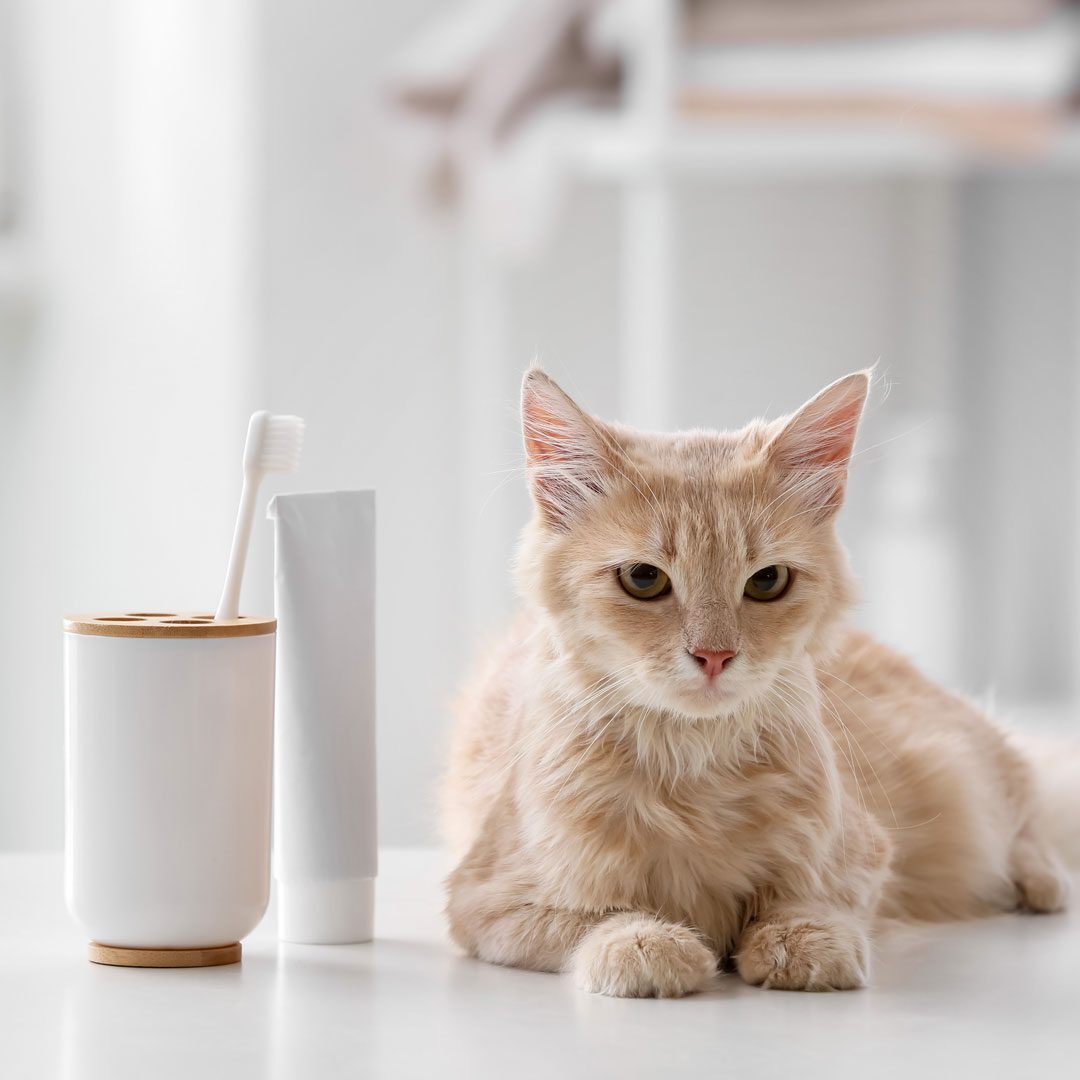What’s Included in Your Pet’s Professional Dental Cleaning?
Your pet’s dental cleaning at our Manchester veterinary clinic is more than just a quick polish. It’s a full-service oral health treatment, carefully performed under general anesthesia for your pet’s safety and comfort.
Here’s what you can expect from a professional teeth cleaning:
Comprehensive Oral Exam
We inspect every tooth, gum tissue, and mucosal surface inside the oral cavity for signs of infection, tartar, tooth resorption, oral masses, or other periodontal problems.
Polishing
After cleaning, teeth are polished to smooth out microscopic imperfections in the enamel and slow future tartar buildup.
Digital Dental X-Rays
Because dental disease often lurks below the gumline where up to 60% of the tooth structure hides, full-mouth X-rays help us catch issues like abscesses, root infections, or bone loss that can’t be seen on the surface.
Extractions (If Needed)
If we find a painful or diseased tooth, we’ll remove it with your consent—and always with local anesthesia and post-op pain relief to keep your pet comfortable.
Hand & Ultrasonic Scaling
Using specialized hand tools and an ultrasonic scaler, we gently remove built-up plaque and tartar from every surface of every tooth, above and below the gumline.
Home Care Guidance
We’ll walk you through next steps, including how to brush your pet’s teeth at home and which dental chews or water additives are actually worth your time.

How Often Should My Pet Have a Dental Cleaning?
Most dogs and cats benefit from annual dental cleanings beginning by 2-3 years of age, though some breeds and individuals may need more frequent care. Toy- and small-breed dogs, flat-faced breeds (like bulldogs or Persians), and pets with pre-existing dental issues often need cleanings every 6–9 months to stay comfortable and infection-free.
Some signs your pet may need a cleaning sooner than later include:
- Persistent foul breath
- Red or swollen gums
- Yellow or brown tartar buildup
- Drooling more than usual
- Pawing at the mouth
- Reluctance to chew or eat
- Bleeding from the gums or mouth
Even if your pet’s breath smells fine, remember—dental disease starts long before symptoms appear. Preventive cleanings can add years to your pet’s life and reduce the need for costly extractions down the road.

